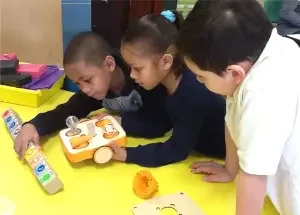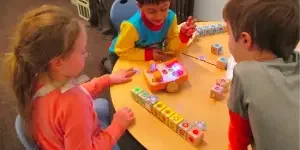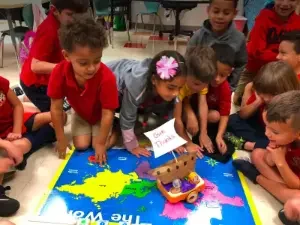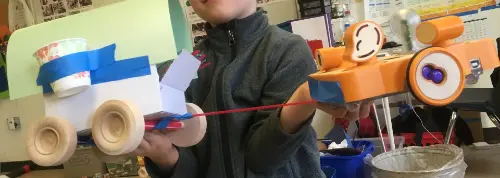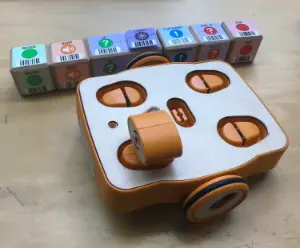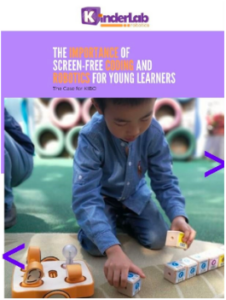EdTech Digest: Cool Tool – Thinking with KIBO: Introducing AI in Early Grades
EdTech Digest includes the new Thinking with KIBO: Introducing Artificial Intelligence (AI) in Early Grades curriculum in their Cool Tool write-up.
The article reads in part:
“Here’s a cool and very timely tool from KinderLab: it’s a curriculum that uses their screen-free robot KIBO to help teach young learners the basic ideas behind AI, focusing both on what it can do and what it can’t do. Thinking with KIBO: Introducing Artificial Intelligence (AI) in Early Grades, is a free curriculum designed to help students understand how AI tools work and to think critically about how these tools can improve lives in their communities.
Designed for students in grades 1–3, each of the lessons allows students to explore fundamental ideas about AI through activities with the hands-on and screen-free KIBO robot. Thinking with KIBO engages with computer science concepts alongside evolving content standards in artificial intelligence. Created by KinderLab Robotics, a leader in educational STEAM robotics for grades pre-K–5, the curriculum is designed for a 5–6 week unit in computer science or technology/media classes, as well as afterschool programs, enrichment centers, libraries, and makerspaces.
Thinking with KIBO is aligned with the draft AI4K12 curriculum guidelines, which explore the “Five Big Ideas in AI”: Sensing, Representation and Reasoning, Learning, Natural Interaction, and Social Impact. These guidelines, a collaboration between the Association for the Advancement of Artificial Intelligence (AAAI) and the Computer Science Teachers Association (CSTA), frame AI learning as an important component of K–12 computer science education.
KinderLab’s new curriculum centers on teaching children how AI works. Featuring four 60-minute lessons and a fifth lesson that can be extended from one to two hours, the core lessons of the new curriculum help students understand these key aspects of AI.”
See the full review!

